Uncontrolled cell growth and spread is a hallmark of the cancer group of disorders. Numerous cancer forms exist, each identified by the part of the body they impact. Lung, colon, prostate, and breast cancers are a few of the most prevalent varieties.
Numerous factors, some of which are beyond your control, such as genetics, age, body weight, and exposure to chemicals, might increase your risk of developing cancer. Your food and lifestyle choices significantly affect your risk of developing various types of cancer, including the most prevalent ones, although complete prevention isn’t possible.
Although specific diets cannot completely prevent or cure cancer, research demonstrates that certain nutrients in plant foods, fruits, legumes, and vegetables reduce the risk of acquiring the disease.
Table of Contents
What foods can reduce the risk of cancer?
Cancer doesn’t have to be an inevitability. Through mindful dietary choices, we can empower ourselves to reduce our risk and promote our well-being.
Berries
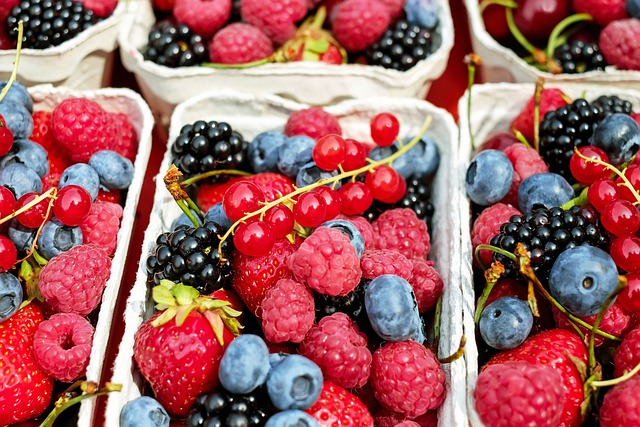
Consuming berries on a regular basis may help lower your cancer risk. Antioxidant and anti-inflammatory substances like flavonoids and anthocyanins are abundant in berries, including blueberries, strawberries, and blackberries. Compounds shield cells, prevent inflammation, reducing cancer risk.
Research suggests ample fruit consumption, like berries, reduces stomach and breast cancer risk
Furthermore, for those who already have breast cancer, berry consumption may help prevent death from breast cancer. In 2020, a study analyzed data from around 9,000 women diagnosed with stage I–III breast cancer, revealing a 25% reduction in breast cancer-specific death linked to consuming two servings of blueberries weekly.
Citrus Fruits
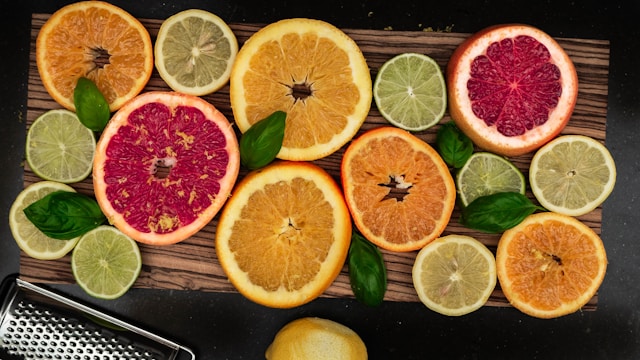
Citrus fruits like oranges, grapefruits, and lemons contain nutrients such as fiber, carotenoids, folate, vitamin C, and flavonoids. Your body may benefit from these minerals’ anti-inflammatory and antioxidant properties, which may reduce your risk of cancer.
include vitamins C, fiber, carotenoids, folate, and flavonoids, among other minerals. Your body may benefit from these minerals’ anti-inflammatory and antioxidant properties, which may reduce your risk of cancer.
In a 2023 analysis of 24 studies, increased citrus fruit consumption reduced colorectal cancer incidence by 9%.
Apples and Pears
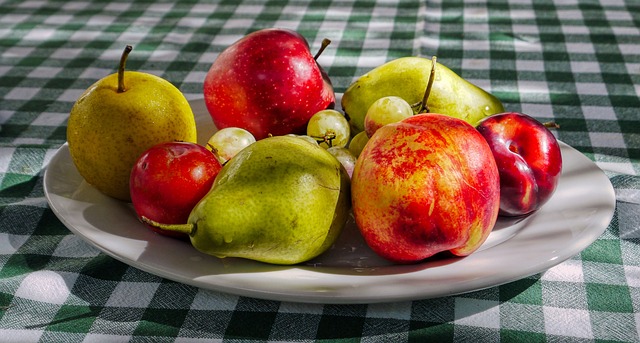
Consuming apples and pears in your diet may help protect you against lung, breast, and colorectal cancers, among other cancers. These fruits boast nutrients and plant-based substances, such as vitamin C and flavonoid antioxidants, known for their anticancer effects.
Studies show regular apple and pear consumption lowers breast, lung, and colorectal cancer risk.
According to the 2023 analysis of the 24 research already stated, eating a lot of apples in your diet can reduce your risk of colon cancer by up to 25%.
Green Leafy Vegetables
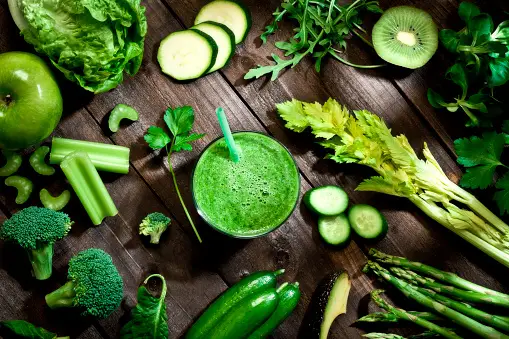
Vegetables, like fruits, are rich in minerals and phytochemicals that fight cancer. Consuming a lot of vegetables, such as cauliflower, onions, and leafy greens, may help minimize the risk of cancer.
Nutrient-rich green leafy vegetables, such spinach, kale, arugula, and Swiss chard, are recognized to have anticancer properties in the body. Carotenoid antioxidants, which include lutein, zeaxanthin, and beta-carotene, are particularly abundant in green leafy vegetables. These antioxidants have potent anti-inflammatory and cellular-protective qualities.
Increased blood levels of carotenoids are linked to a decreased risk of certain types of cancer.For instance, a 2021 study including 3,614 women—1,919 of whom were at high risk for breast cancer—found that, when compared to women with the lowest circulating levels of carotenoids, women at risk of breast cancer who had the highest blood levels of these compounds had a significant 28.6% lower risk of breast cancer.
Kale and arugula are examples of green leafy vegetables that may help prevent pancreatic cancer. Each additional serving of cruciferous veggies per week, like kale and arugula, correlated with 7–15% lower pancreatic cancer risk.
Additionally, the study discovered that individuals who had more than 1.5 servings of raw cruciferous vegetables weekly had a 40% lower risk of pancreatic cancer than those who consumed 0.5 servings or fewer. Raw cruciferous veggies like kale and arugula salads offer specific protection against this cancer.
Cruciferous Vegetables
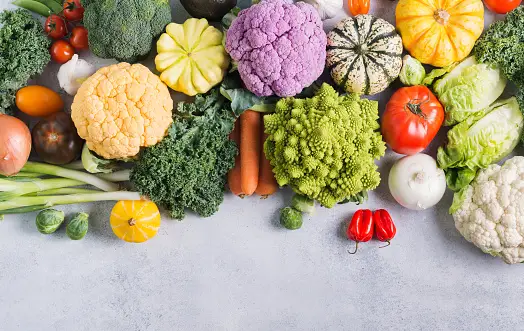
Broccoli, cauliflower, cabbage, and leafy greens including kale, arugula, and Swiss chard are examples of cruciferous vegetables. Studies have demonstrated that these veggies provide remarkable preventive benefits against a number of illnesses, including cancer. Phytochemicals called glucosinolates, which include sulfur, contain them. The body converts glucosinolates into isothiocyanate molecules, which exhibit potent anticancer effects.
Increased consumption of cruciferous vegetables may be a useful strategy to reduce your chance of developing breast, stomach, lung, and pancreatic cancers, according to compelling research.
In a 2020 study of 1,168 participants, highest cruciferous veggie intake linked to 41% lower stomach cancer risk. Eating raw cruciferous veggies offers strong protection against stomach cancer, consistent with pancreatic cancer risk findings.
Allium Vegetables
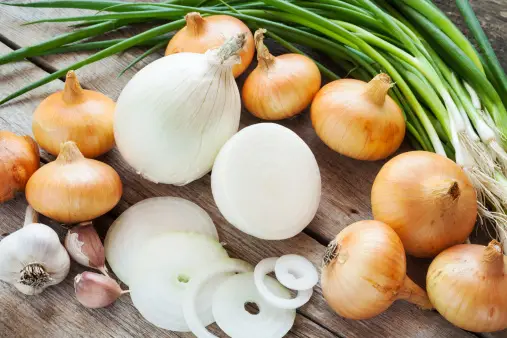
Plant components present in allium vegetables, such as garlic, onions, and leeks, may offer protection against specific types of cancer. Specifically, organosulfur compounds, vitamin C, and flavonoids—all of which are abundant in garlic and onions—have anticancer properties that may prevent the growth of cancer cells and shield them from oxidative damage.
High intake of allium vegetables may reduce stomach, colorectal, breast, and other cancers, according to studies.
In a 2022 meta-analysis of 17 studies, highest allium intake linked to 30% lower breast cancer risk.
Seafood
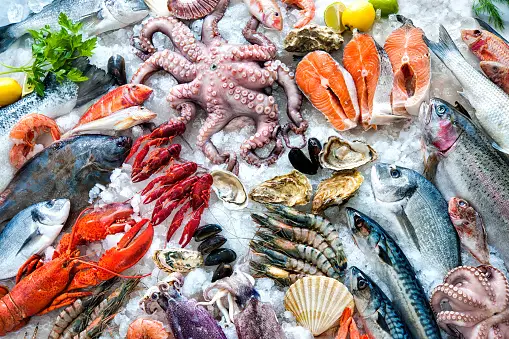
Fish, particularly oily varieties like salmon, trout, mackerel, and sardines, are excellent sources of omega-3 fats like docosahexaenoic acid (DHA) and eicosapentaenoic acid (EPA). Strong anti-inflammatory properties and protection against cellular damage are two benefits of EPA and DHA. Besides EPA and DHA, fatty fish contain carotenoid antioxidants and antioxidant minerals like vitamin E and selenium.
Consuming fish on a regular basis may reduce your chance of developing heart disease and several types of cancer, among other common health issues. Studies have shown that diets high in seafood offer protection against colorectal cancer and other malignancies.
People who eat the most fish had a considerably lower risk of colon cancer, according to a 2022 assessment of 25 studies. Study results show a significant 4% decrease in colorectal cancer risk with every 50g increase in daily fish intake.
Eating oily fish, such as trout and sardines, has also been linked to a lower risk of liver and breast cancer.
Legumes
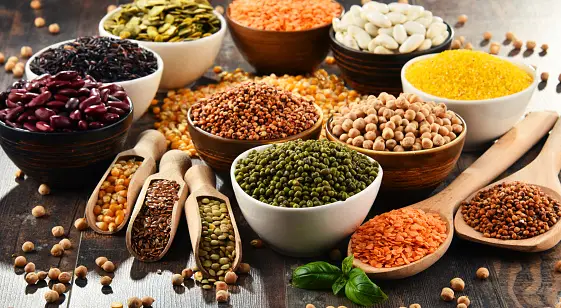
Nutrients like fiber and minerals found in legumes, such as beans and lentils, have been shown to have anti-cancer effects. Legumes have additional cancer-preventive benefits due to the presence of bioactive components including phenolic compounds, which can lessen inflammation and shield cells from harm.
Adding beans and lentils to your diet reduces colorectal cancer risk associated with low-fiber diets. This is because beans and lentils are high in fiber. According to a 2022 evaluation of 29 research on the subject, consuming an additional 100 grams (g) of beans per day was linked to a 21% decreased risk of colon cancer.
By reducing the amount of carcinogens or compounds that cause cancer in the stools, preventing constipation, and boosting the body’s synthesis of short-chain fatty acids—compounds that have anti-cancer properties in the digestive system—foods high in fiber can help prevent colorectal cancer.
Regular legume consumption may reduce breast and prostate cancer risk, among others.
Herbs and Spices
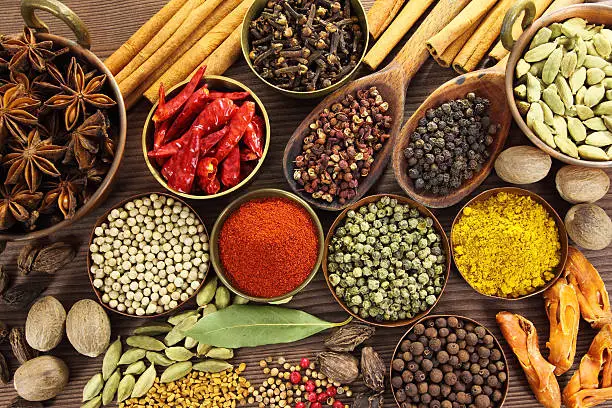
Plant components found in herbs and spices including ginger, thyme, oregano, turmeric, and rosemary may help prevent cancer. For instance, turmeric contains curcumin, a polyphenol with potent anticancer effects. Curcumin triggers cancer cell apoptosis and hinders signaling pathways promoting invasion and proliferation.
Because it helps shield your body from oxidative stress, apigenin, which is present in parsley, and rosmarinic acid, which is rich in rosemary and oregano, have also been demonstrated to have anticancer effects.
Adding herbs and spices to your diet can lower cancer risk due to their cancer-fighting properties. As a matter of fact, dietary regimens linked to a lower risk of cancer frequently incorporate herbs and spices, such as the Mediterranean diet, which is rich in oregano, rosemary, garlic, and paprika.
Foods to Restrict or Steer Clear of
Limiting your intake of foods associated to an elevated risk of cancer is just as important as adhering to a diet high in minimally-processed, nutrient-dense foods and frequently including foods known to have anticancer properties to help reduce your chance of getting specific cancers.
You should generally not fully avoid the following foods and beverages, but cutting back on them and substituting them with healthier options may help reduce your risk of acquiring cancer and other illnesses, including heart disease.
- Fried dishes
- Over processed food
- Quick food
- Consumables with a lot of added sugar
- Alcohol
- Processed and red meats
- Refined carbs
Overindulging in certain foods and beverages can raise your risk of cancer by causing cellular damage, inflammation, obesity, and other cancer-related risk factors.
For instance, eating fried food increases the risk of developing cancer and increases the fatality rate from the disease. Research indicates that consuming diets high in fried foods increases the risk of developing gastric, pancreatic, and breast cancers, among other malignancies.
A study of 18 studies published in 2023 revealed that eating a lot of fried food could raise your risk of stomach cancer by over 50%.
Due to the increased risk of cancer associated with alcohol, sugary meals and beverages, processed and red meat, and highly processed foods like packaged snack foods and sugary cereals, it is advisable to restrict your use of these items and swap them out for healthier options.
Which Diets Are Most Effective in Reducing the Risk of Cancer?
Researchers have focused on dietary patterns that may offer some cancer protection after decades of study. Cancer-preventive diets prioritize plant-based foods, shunning fast food and added sugar to prevent diseases.
Individuals living near the Mediterranean Sea and adhering to a Mediterranean diet have a lower risk of developing certain diseases, such as cancer. Studies link Mediterranean-style diets to a lower risk of several malignancies, including stomach, colon, prostate, and breast cancer.
Mediterranean diets and other eating styles, such as plant-based diets, proven to lower cancer risk, contain high levels of fiber, vitamins, minerals, antioxidants, and anti-inflammatory chemicals. They may prevent cancer by reducing inflammation and preventing cellular damage.
These habits also prevent obesity, a major risk factor for cancers like prostate and breast cancer. A healthy, balanced diet can also help reduce your risk of acquiring other major health issues including diabetes, liver disease, and heart disease in addition to preventing cancer.
An Overview
One of the greatest methods to reduce your chance of acquiring cancer is to maintain a healthy diet and lifestyle, even though there are certain cancer risk factors that are beyond your control.
Research indicates that diets high in fruits, vegetables, and legumes may offer protection against colon, prostate, and breast cancers, among other malignancies.
Although there is no single meal that may prevent cancer, eating a diet rich in nutrient-dense foods and avoiding foods and beverages associated with a higher risk of the disease is one of the best strategies to promote your general health while lowering your chance of chronic illnesses like cancer.
